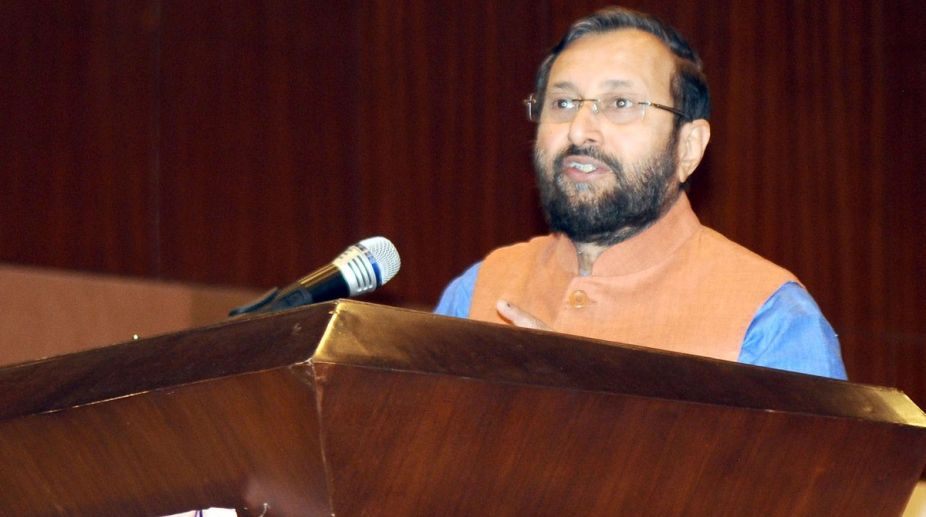NCERT published textbooks would have QR codes from next year (2019-20) which will help students to understand chapters better by watching a film or reading additional content on laptops and digital boards, Union minister Prakash Javadekar said on Thursday.
Quick Response (QR) Code is a machine-readable code consisting of an array of black and white squares, typically used for storing web-links or other information for reading by the camera on a smart-phone.
Advertisement
The government has made a provision of Rs 6,600 crore for bearing the interest component on education loans, he told reporters.
The moratorium will be for the course period plus 1 year, he said.
Nearly 10 lakh students would avail the benefits from 2017-18 to 2019-20, with the government bearing about Rs 2,200 crore per year towards interest costs on education loans, the minister said.
Under the scheme, the government will bear the interest cost on education loan up to Rs 7.50 lakh for students from families with less than Rs 4.5 lakh income, Javadekar said briefing reporters about yesterdays Cabinet’s decisions.
From 2009 to 2014, the government has spent Rs 800 crore per year under the scheme, which increased to Rs 1,800 crore per year from 2014 to 2017, he said.
On the NCERT books, he said from next year, these books would be energised, carrying a QR code which would allow the students to access films and additional material to understand the chapter.
The minister said that the government has also decided that three existing schemes on improving public education – Sarva Shiksha Abhiyan, the Rashtriya Madhyamik Shiksha Abhiyan and the Teacher Education (TE) would be merged.
An estimated allocation of Rs 75,000 crore over the period has been approved which is a 20 per cent increase over the current allocations.
The minister said a committee has been formed to look into the issue of promoting digital board by replacing the blackboard to improve quality of education. He said the committee will give their report in a month’s time.











